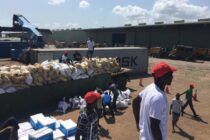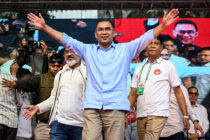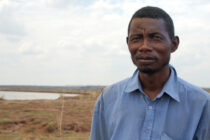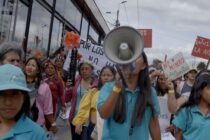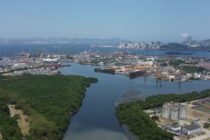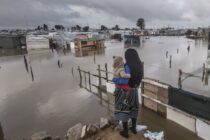As Trump tears down renewable energy, once again, Mozambique bears the brunt of climate harm caused by fossil fuel producers. Weiterlesen
Meet four students speaking out on what they expect from Bangladesh’s new government
Here, four young Bangladeshis, united in their hope that the new government will make a break with the past, share their expectations on what it must deliver. Weiterlesen
Ellinor: “While I still have power to fight for Indigenous rights in Norway, I will”
Ellinor Guttorm Utsi, 60, is a Sami reindeer herder from Norway. The Sami people are an Indigenous People with distinct culture, languages, and traditions who inhabit the northernmost regions of Norway, Sweden, Finland, and Russia. Weiterlesen
Damisoa: we left our drought-stricken land and found new struggles
Damisoa tells his story of displacement and survival and calls for the government to take urgent steps to address the hunger, homelessness and poor healthcare faced by him and others displaced by drought in Madagascar. Weiterlesen
Chad: Authorities failing to address deadly clashes between herders and farmers amid climate crisis
The Chadian authorities have failed to protect the victims of armed clashes between herders and farmers as well as their right to truth, justice, and reparations, Amnesty International said in a new report. Weiterlesen
Saudi Arabia: Migrant workers behind the Riyadh Metro system subjected to decade of devastating abuse
Migrant workers who travelled to Saudi Arabia to work on the Riyadh Metro project were forced to pay exorbitant recruitment fees, worked in dangerous heat and earned pitiful wages during a decade of serious abuse, Amnesty International revealed in a new report today. Weiterlesen
OpEd: From an oil well to COP30
One of the girls who sued the Ecuadorian government to end gas flaring in the Amazon will attend the environmental summit to demand that the court ruling be enforced. Weiterlesen
Global: Fossil fuel infrastructure is putting rights of 2 billion people and critical ecosystems at risk
Fossil fuel infrastructure poses risks for the health and livelihoods of at least 2 billion people globally, roughly a quarter of the world’s population, Amnesty International and Better Planet Laboratory said in a new report on the fossil fuel industry’s harms to climate, people and ecosystems across the world. Weiterlesen
Somalia: Thousands of climate-displaced individuals being failed by authorities and the international community – new report
Somali authorities and the international community have repeatedly failed to protect thousands of people from drought-affected communities in southern Somalia, exposing them to violations of their rights to food, water, family, health and life, Amnesty International said in a new report. Weiterlesen
South Africa: Government is failing millions of people trapped in informal settlements and impacted by the climate crisis – new report
The government is putting the well-being and in many cases the lives of the more than five million people living in South Africa’s informal settlements at risk by failing to provide them with access to quality housing and essential services, Amnesty International South Africa said in a new report. Weiterlesen

